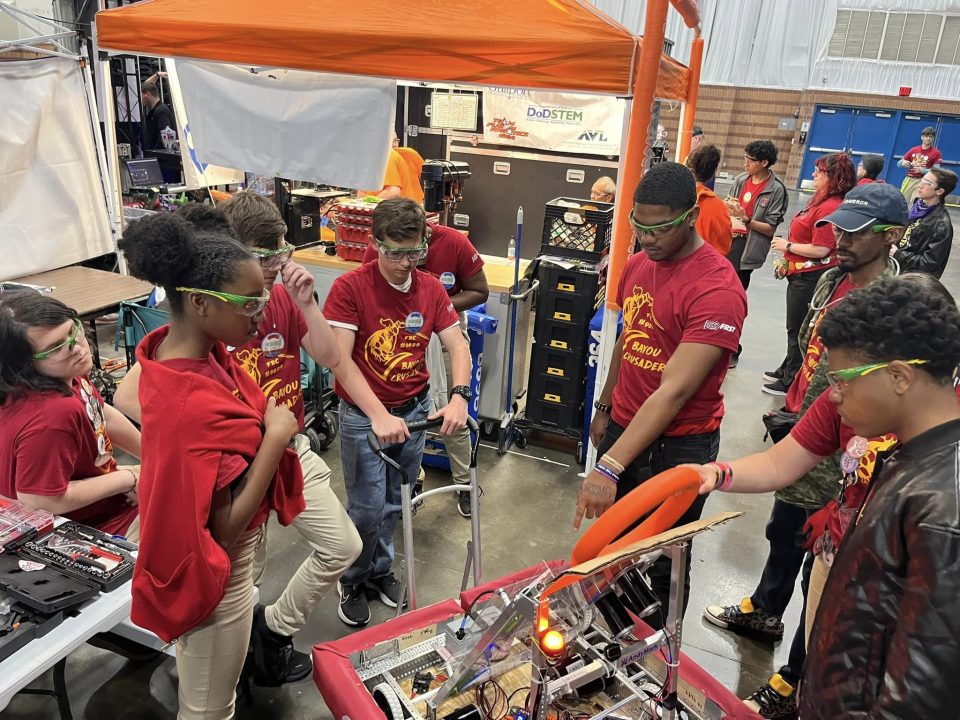
Space for Style
October 1, 2020
Celebrate International Dinosaur Month
October 1, 2020The Senate unanimously passed Sen. John Kennedy’s (R-La.) bill to amend the Nutria Eradication and Control Act. Kennedy and Sen. Dianne Feinstein (D-Calif.) introduced the legislation in July to prevent invasive nutria from continuing to destroy America’s coastal wetlands.
“While Louisiana’s marshlands provide a habitat to some of America’s most beautiful wildlife, they are also the first line of defense against damaging storms. Nutria have already destroyed thousands of acres of wetland along our coast, putting Louisianians and our ecosystems at greater risk. I want to thank my colleagues in the Senate for passing this bipartisan bill. Now, I hope it quickly becomes law to save communities from the Gulf of Mexico to the Pacific Ocean from these destructive swamp rats,” said Kennedy.
“The nutria rodent threatens to overwhelm our farms and wetlands if we don’t act. In California, there could be as many as 250,000 nutria within five years that could cause more than $1.2 billion a year in agriculture losses and eradication costs. I’m pleased that the Senate passed our bill to stop this invasive species before the infestation gets out of hand,” said Feinstein.
Kennedy’s bill authorizes an additional $6 million per year to increase assistance for states participating in the Nutria Eradication Program, which provides funding to states that take action to eliminate the invasive species. The measure also makes all states eligible to participate in the Nutria Eradication Program and appropriates financial assistance based on the total area of a state that is affected by nutria.
U.S. Congressman Garret Graves (South Louisiana), a member of the U.S. House Natural Resources Committee, released the following statement today after a bill he sponsored and negotiated passed the U.S. Senate and now heads to President Trump for his signature. The legislation, H.R. 3399 – To amend the Nutria Eradication and Control Act of 2003 to include California in the program, and for other purposes, provides funding for a nutria bounty program and restoration funds to nutria related damage. U.S. Congressman Josh Harder (D-CA) is the sponsor of the legislation.
“We’ve spent months hosting meetings with Congressman Harder and representatives of the nutria community, but no solutions have prevailed in our negotiations for their peaceful surrender. Our funds were almost depleted but our spirits remained untouched in the fight for the soul of our marsh and coastal communities. With this swift action from the Commander in Chief, the states will have the resources needed to fight back the invasive species that accelerate the destruction of coastal wetlands,” Graves said.
“Nutria are a huge threat to our farms, our water infrastructure and our native ecosystems. It’s time to get rid of them. I want to thank Congressman Graves for working with me on this bipartisan bill to help protect both of our districts from the swamp rat menace,” Harder said.
The bill increases funding and expands efforts to control nutria populations. The funds will be distributed in an amount that is in proportion to the total impacted area affected by nutria. The legislation also allows the funding to be used to restore areas that have been lost or damaged by nutria. This includes public and private and private wetlands, agricultural lands and coastal marshes. (Click here for Graves’ remarks on the legislation passing the U.S. Senate.)
In February, Graves spoke about the bill on the House Floor before the bill passed the U.S. House: “I have come here many times to describe the coastal challenges we have in Louisiana. We have lost 2,800 square miles of our coast, and the 20 million invasive nutria infesting our state are part of the problem. Think about this: nearly 4.5 million people live in Louisiana, yet we have an estimated 20 million nutria…20 million! It’s an extraordinary figure. If we could count them in the census, Louisiana would pick up an additional 27 members of Congress. We’re having infestation without representation and we need to do something about it…” (Click here for that previous speech.)
The current Louisiana Coastwide Nutria Control Program is funded through 2022. (To read more, click here.)
2018-2019 Nutria Control Program:
- 223,155 nutria tails worth $1,115,775 in incentive payments were collected from 241 active participants
- Terrebonne Parish turned in the most tails (51,960), followed by Plaquemines (39,657), and St. Mary (19,458) Parishes
- 86 (36%) participants turned in less than 200 tails, 49 (20%) turned in 200-499 tails, 28 (12%) turned in 500-799 tails, and 78 (32%) turned in >800 tails
- 55% of the nutria were harvested by rifle, 27% trapped, and 18% with a shotgun
- The 2019 Nutria Herbivory Survey was completed May 23rd, there were 3,907 acres damaged along transect lines, which extrapolates to 14,652 acres coastwide







